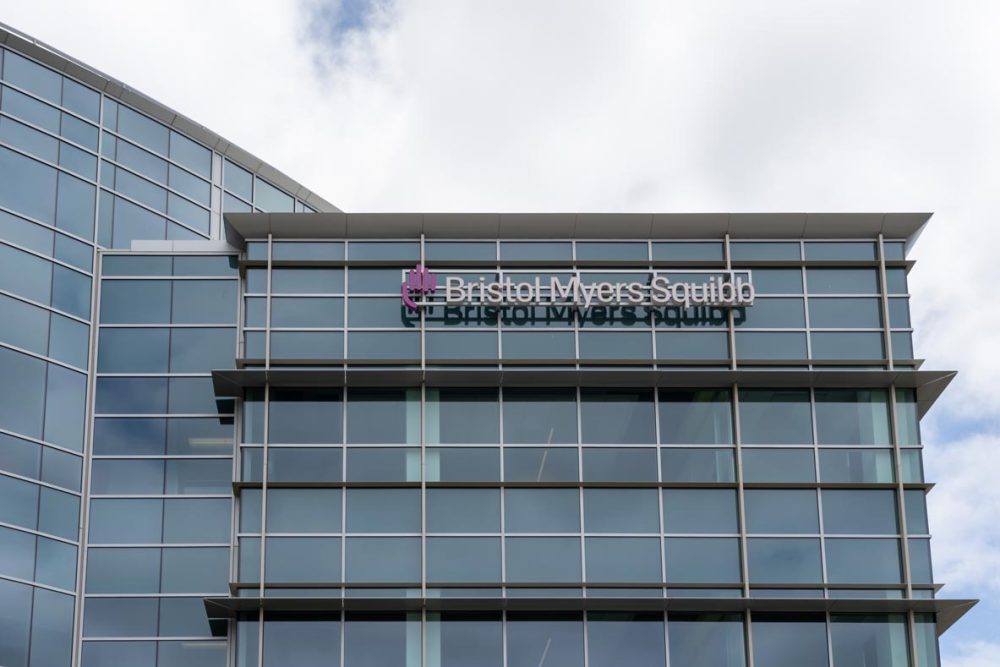Advertisment
Opdivo + Yervoy significantly improved overall survival compared to lenvatinib or sorafenib as first-line treatment for patients with advanced hepatocellular carcinoma in CheckMate -9DW trial – BMS

Bristol Myers Squibb announced the first presentation of results from the Phase III CheckMate -9DW trial evaluating the dual immunotherapy combination of Opdivo (nivolumab) plus Yervoy (ipilimumab) compared to investigator’s choice of lenvatinib or sorafenib as a first-line treatment for patients with unresectable hepatocellular carcinoma (HCC).
Results from the study were featured in a late-breaking oral presentation at the 2024 ASCO ® Annual Meeting today, June 4, at 9:45 a.m. CDT (#LBA4008).
With a median follow-up of approximately 35.2 months, treatment with Opdivo plus Yervoy demonstrated: i. A statistically significant and clinically meaningful improvement in the primary endpoint of overall survival (OS). Median OS was 23.7 months (95% CI: 18.8–29.4) for Opdivo plus Yervoy compared to 20.6 months (95% CI: 17.5–22.5) with lenvatinib or sorafenib (HR: 0.79 (0.65–0.96); p = 0.018). The overall survival benefit was generally consistent across patient subgroups. ii. A statistically significant and clinically meaningful improvement in the key secondary endpoint of objective response rate (ORR), which was 36% (95% CI: 31-42) for Opdivo plus Yervoy compared to 13% (95% CI: 10-17) with lenvatinib or sorafenib. iii. A higher complete response (CR) rate of 7% for Opdivo plus Yervoy vs. 2% with lenvatinib or sorafenib. Responses were durable; among responders, median duration of response was 30.4 months for Opdivo plus Yervoy (95% CI: 21.2-NE) and 12.9 months for lenvatinib or sorafenib (95% CI: 10.2-31.2). iv. Opdivo plus Yervoy demonstrated a significantly reduced risk of symptom deterioration of 24% compared to lenvatinib or sorafenib (HR: 0.76, 95% CI: 0.62-0.93; p = 0.0059).
The safety profile for the combination of Opdivo plus Yervoy remained consistent with previously reported data and was manageable with established protocols. Treatment-related adverse events (TRAEs) of any grade were reported in 84% of patients with Opdivo plus Yervoy and 91% in patients with lenvatinib or sorafenib. Grade 3/4 TRAEs occurred in 41% and 42% of patients, respectively.
“Despite recent advances in the treatment of HCC, prognosis remains poor for patients with advanced HCC, and therapies that improve survival and help delay disease progression are needed,” said Peter R. Galle, M.D., of the University Medical Center, Mainz. “These data from CheckMate -9DW confirm the efficacy of the combination of nivolumab and ipilimumab and ability to extend survival, which is very encouraging.”
“The combination of Opdivo plus Yervoy has been an established second-line treatment for patients with advanced HCC and, with these results, we can demonstrate that Opdivo plus Yervoy significantly increases survival and other key efficacy measures in the first-line setting for patients with advanced disease,” said Dana Walker, M.D., M.S.C.E., vice president, global program lead, gastrointestinal and genitourinary cancers, Bristol Myers Squibb. “We look forward to discussing these data with health authorities and potentially bringing the dual immunotherapy combination of Opdivo plus Yervoy to more patients.”
About CheckMate -9DW : CheckMate -9DW is a Phase III randomized, open-label trial evaluating the combination of Opdivo plus Yervoy compared to investigator’s choice of lenvatinib or sorafenib monotherapy in patients with advanced hepatocellular carcinoma who have not received prior systemic therapy. Approximately 668 patients were randomized to receive Opdivo plus Yervoy (Opdivo 1mg/kg plus Yervoy 3 mg/kg Q3W for up to four doses, followed by Opdivo monotherapy 480 mg Q4W) infusion, or single agent lenvatinib or sorafenib as oral capsules in the control arm. The primary endpoint of the trial is overall survival and key secondary endpoints include objective response rate and time to symptom deterioration.





